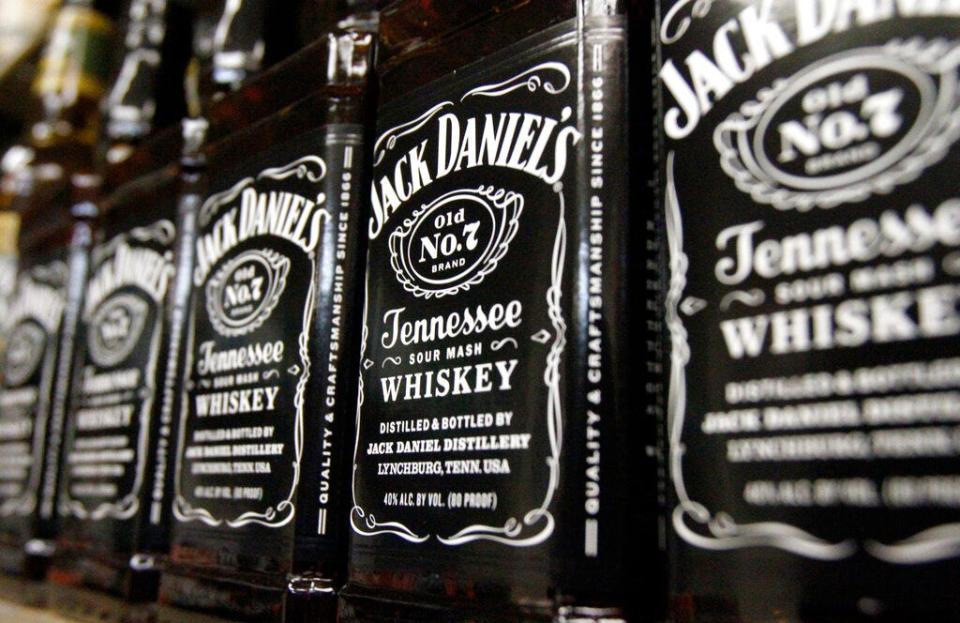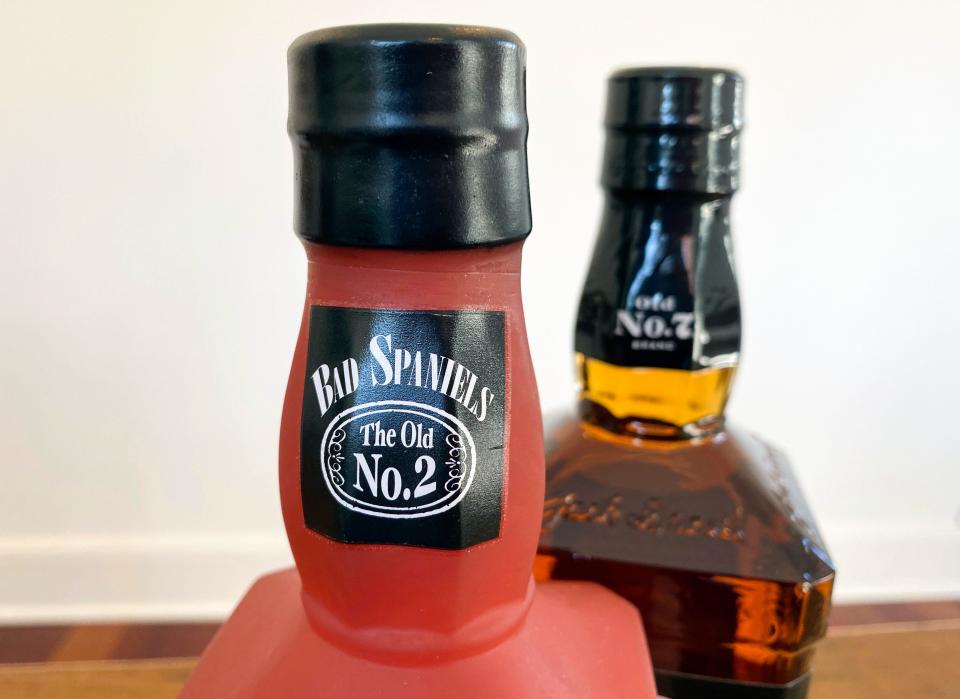Trademark case between Jack Daniel's, Phoenix dog toy company heads to Supreme Court
- Oops!Something went wrong.Please try again later.
The U.S. Supreme Court will determine how much confusion there really is between a bottle of whiskey and a liquor bottle-shaped dog toy.
Lawyers for Jack Daniel's and Phoenix-based dog toy manufacturer VIP Products argued the case before the high court on Wednesday.
At issue is whether a dog toy created by VIP Products infringes on Jack Daniel's trademark rights or exists as a parody.
Lisa Blatt, an attorney who argued on behalf of Jack Daniel's, started the arguments by stating that there are no First Amendment issues to avoid. While the district court found there to be both trademark infringement and dilution. Dilution is a term used for famous trademarks — in other words, if it is used by other entities, its uniqueness will be diluted.
In the Court of Appeals for the 9th Circuit, the court ruled in favor of VIP Products. Using the bottle's design to convey a humorous message is protected by the First Amendment, according to the ruling.
When it comes to dilution, the court applied an exemption to trademark that was initially invented for movie titles, said Blatt. Under the exemption, Rogers v. Grimaldi, an expressive work is allowed to confuse if the trademark is artistically relevant and not explicitly misleading, Blatt argued.
But the Lanham Act, which concerns trademark law, prohibits using trademarks when it is likely to cause confusion. And artistic relevance has nothing to do with confusion, said Blatt.
Justice Clarence Thomas questioned whether Rogers would have to be overruled, or whether it can coexist with the Lanham Act. Could something fail the Rogers test and be deemed misleading, yet not be confusing under the Lanham Act?

It comes down to whether something is misleading in terms of origin or sponsorship, Blatt responded.
In talking about parody to the justices, Blatt said it's not about whether or not someone gets the joke, but about whether or not they are confused about who made the joke. Parodies are similar, but simultaneously different enough, that consumers are not confused about who is telling the joke.
When Justice Sonia Sotomayor said people don't need permission to make a parody, Blatt said they need permission if it's a confusing parody.
When Justice Samuel Alito asked Blatt if a reasonable person would think that Jack Daniel's approved of the toy, Blatt answered yes.
Bennett Cooper, a lawyer arguing for VIP Products, said it's clear that Jack Daniel's is not concerned about confusion with the source of the joke; the company is concerned about the product's comparison to dog poop.

Jack Daniel's as a company takes itself too seriously and is subject to parody because it is such a famous and iconic brand. The markets for the two different products are also noncompetitive, Cooper said.
Brands typically don't license parodies of their own products, Cooper said. And there is no evidence that people purchasing the product would believe that it was sold by Jack Daniel's or that Jack Daniel's sponsored the product.
How the case got to the High Court
The case has been in and out of the court system for several years after Jack Daniel's initially asked VIP Products to stop selling the product. VIP Products refused and filed a claim in September 2014 stating that the dog toy does not infringe on any trademark rights.
Previous coverage:Could a dog toy tarnish Jack Daniel's image? Supreme Court will hear the case
Jack Daniel's responded to the filing by claiming that the toy does infringe upon its trademark and trade dress, with a similar shape of the product and font used.
In its request for the Supreme Court to review the case in August 2022, Jack Daniel's questioned whether VIP Products should have stronger First Amendment protections because the use of the Jack Daniel's trademark was humorous.
VIP Products, filing in response with the Supreme Court, asked that the request be denied. That filing asks whether the Trademark Dilution Revision Act’s statutory exception for “noncommercial use” applies to a parody of a Jack Daniel's bottle of whiskey. The Trademark Dilution Revision Act was designed to overturn a previous ruling that stated actual dilution had to be proved, as opposed to just likelihood of dilution, and also added a defense for noncommercial use. The Ninth Circuit court stated that although VIP Products was selling a product, it did not constitute a commercial one because the message conveyed was humorous.
When the use of a trademark is noncommercial, there can be no dilution by "tarnishment," according to the filing. Speech is noncommercial if it contains some protected expression, and so can be noncommercial even if a product is being sold.
This article originally appeared on Arizona Republic: It's AZ dog toy firm VIP Products vs. Jack Daniel's in Supreme Court

